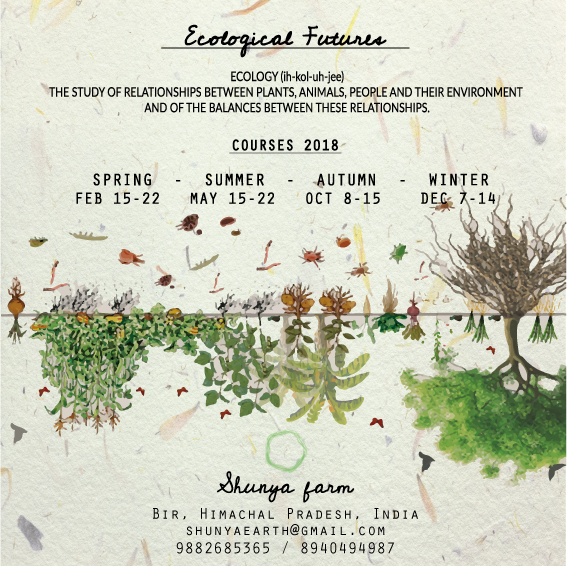
The term ecology was coined by Ernst Haeckel, a visionary scientist from Germany in the 1800s. The root word for ecology is the Greek ‘oikos’- which means household or more specifically, in this case, the earth household. Thus, ecology is a science of the study of relationships between the members of this earth household. Haeckel called it the economy of nature.
Today, as our world continues to deal with the challenges of inequity in all human cultures, and in every respect, deterioration of our natural systems, climate change, and a degradation of social and spiritual life, believing that someone, somewhere, at some point in time, with some technology, will find the answer to our ailing world, is no better than believing that these crises don’t exist.
Over the last few decades, researchers and practitioners are observing a pattern common to all these crises. They are all very complex to understand, they depend on many variables. Zooming out and looking at the big picture would reveal that all these problems are interconnected and interdependent and that it is technically impossible to solve one problem without solving the others at the same time. Therefore the solutions to any of these challenges at any scale will need to be holistic in their view of the individual, the community, and the natural systems, depending less on the advancement in our infrastructure and technology, and more on advancement in our personal, social and ecological relationships.
Our current development paradigms only create material profit at the cost of environmental and individual health. And a new future where it is possible to create communities that are sustainable and holistic would require a new paradigm altogether.
Ecological futures brings forth an exploration into the possibilities of and beyond sustainability. The clues for imagining these scenarios are revealed through patterns in natural systems that are inherently sustainable. The course will offer tools to synthesize our scientific and spiritual understanding of life and in that imagine ways of transiting from anthropocentric to eco-centric paradigms.
During the course, we will journey through the history of our mankind and the history of life to put our future in perspective.
The course will be hosted on a one-acre organic farm in a village called Bir, in the northwestern Himalayas in India. The farm offers a space to observe the patterns in nature and learn how food can be grown in smallest of terraces and plots.
This course is for people who feel the need to articulate their ideas on sustainability before they begin working towards it. Overall, the objective of the course is to send back the participants with a lot to think about and the confidence and skills to start their own gardens or farms.
Outline
Why design? – Soil food web – Patterns – Life of plants – Evolution in social and natural systems – Understanding sustainability – The story of food – Jal Jungle Jameen – Edible mushrooms – Reading landscapes – Propagating plants – Seed saving – Composting – Economics of what? – Invisible structures
Number of participants per course
5 – 8
Farm work
All participants will spend about three to five hours working at the farm every day.
During this time the participants will learn some basic skills on using tools, making knots, starting a fire, plant identification, reading landscapes, water harvesting, and a natural way of working in a garden or a small-scale farm. All work on the farm is done with hands and no heavy machinery is involved.
Registration
